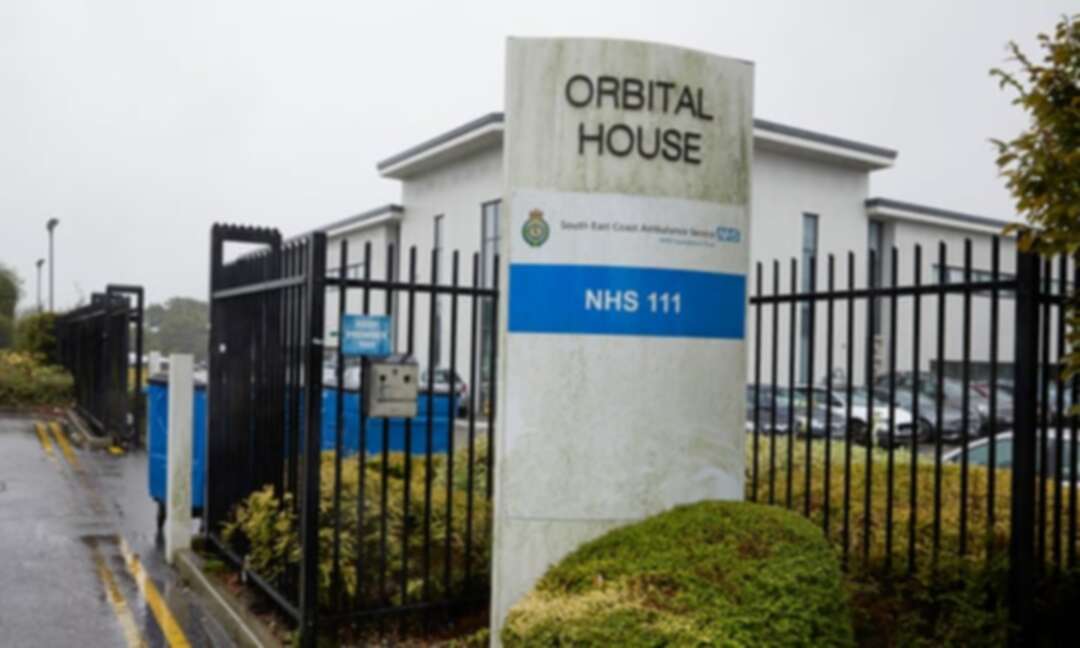-
Patient safety watchdog launches investigation into NHS 111 advice to Covid patients

Review will study whether failings by the telephone service and poor advice to stay at home cost lives
The NHS patient safety watchdog has launched an investigation into failings by the NHS 111 telephone advice service which may have cost the lives of people with Covid-19.
The Healthcare Safety Investigation Branch (HSIB) has begun looking into what advice the service gave to several callers who rang during the pandemic seeking its help because they were unwell.
The inquiry follows a series of disclosures in the Guardian last year by David Conn about serious problems with NHS 111’s performance, some of which are claimed to have led to deaths. He revealed that:People who were critically ill with Covid died after they were wrongly told to stay at home rather than seek medical help at hospital.
Call handlers did not seem to recognise that conditions such as diabetes and multiple sclerosis made patients more likely to fall seriously ill with Covid.
Nurses who worked for NHS 111 said the service was unsafe because staff were not able to make clinical assessments about how ill patients were, and had been given only four hours’ training.
The Covid-19 Bereaved Families for Justice Group believes that several hundred of its members had a relative die after calling 111 and being told that they should stay at home. They have demanded a public inquiry into the service’s record during the pandemic.
At the time NHS 111 was far busier than usual, answering up to 3m calls a month, as the government and NHS urged people to ring it rather than go to A&E or to see a GP.
The Guardian reported that there were particular problems with the quality of advice given by call handlers working for the Coronavirus Response Service which 111 set up, and that was run by the South Central ambulance service (SCAS). An intensive internal audit found that “over 60% of calls
Concerns were also raised early in the pandemic last spring that the service could not cope with the sudden sharp increase in callers and that some people waited a long time to speak to a call handler, with some ringing off
HSIB usually decides to inquire into an alleged lapse of safety in the NHS when it receives a “trigger case” which causes its investigators concern that a problem may be common. In the case of NHS 111, however, the agency is now examining the helpline’s handling of several cases.
The watchdog said in a statement: “Following concerns brought to us via the chair of our Citizen’s Partnership we undertook focus groups with members of the public to explore the issues raised around the NHS 111 response to callers with potential Covid-19 symptoms.
“These initial focus groups have helped to shape the direction of the investigation and we are now looking at several reference cases, rather than a single incident, to establish what the national learning is for the NHS 111 service.
“As the investigation progresses we will carry out further focus groups to ensure that the public perspective is integrated fully into our investigation.”
It gave no further details and expects to produce interim findings and then a final report.
NHS England and South Central ambulance service have been approached for comment.
source: Denis Campbell
Levant
You May Also Like
Popular Posts
Caricature
BENEFIT Sponsors BuildHer...
- April 23, 2025
BENEFIT, the Kingdom’s innovator and leading company in Fintech and electronic financial transactions service, has sponsored the BuildHer CityHack 2025 Hackathon, a two-day event spearheaded by the College of Engineering and Technology at the Royal University for Women (RUW).
Aimed at secondary school students, the event brought together a distinguished group of academic professionals and technology experts to mentor and inspire young participants.
More than 100 high school students from across the Kingdom of Bahrain took part in the hackathon, which featured an intensive programme of training workshops and hands-on sessions. These activities were tailored to enhance participants’ critical thinking, collaborative problem-solving, and team-building capabilities, while also encouraging the development of practical and sustainable solutions to contemporary challenges using modern technological tools.
BENEFIT’s Chief Executive Mr. Abdulwahed AlJanahi, commented: “Our support for this educational hackathon reflects our long-term strategic vision to nurture the talents of emerging national youth and empower the next generation of accomplished female leaders in technology. By fostering creativity and innovation, we aim to contribute meaningfully to Bahrain’s comprehensive development goals and align with the aspirations outlined in the Kingdom’s Vision 2030—an ambition in which BENEFIT plays a central role.”
Professor Riyadh Yousif Hamzah, President of the Royal University for Women, commented: “This initiative reflects our commitment to advancing women in STEM fields. We're cultivating a generation of creative, solution-driven female leaders who will drive national development. Our partnership with BENEFIT exemplifies the powerful synergy between academia and private sector in supporting educational innovation.”
Hanan Abdulla Hasan, Senior Manager, PR & Communication at BENEFIT, said: “We are honoured to collaborate with RUW in supporting this remarkable technology-focused event. It highlights our commitment to social responsibility, and our ongoing efforts to enhance the digital and innovation capabilities of young Bahraini women and foster their ability to harness technological tools in the service of a smarter, more sustainable future.”
For his part, Dr. Humam ElAgha, Acting Dean of the College of Engineering and Technology at the University, said: “BuildHer CityHack 2025 embodies our hands-on approach to education. By tackling real-world problems through creative thinking and sustainable solutions, we're preparing women to thrive in the knowledge economy – a cornerstone of the University's vision.”
opinion
Report
ads
Newsletter
Subscribe to our mailing list to get the new updates!






















